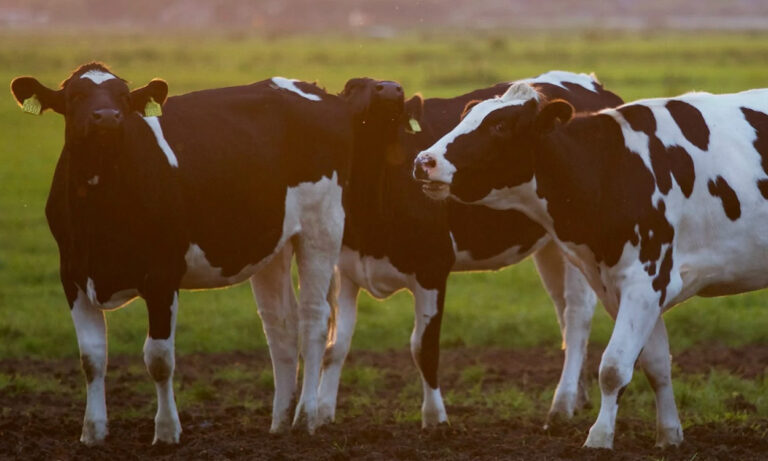Farmers in New Zealand may soon be taxed for cow and sheep burps
New Zealand’s latest plan to tackle climate change includes taxing one of the country’s biggest sources of greenhouse gases: sheep and cow burps—which have proven time and time again to literally gas our planet into extinction.
Announced on Tuesday 11 October 2022, New Zealand is set to be the world’s first nation to charge farmers for the methane emissions from the animals they keep. As of 2021, the island country was home to 6.3 million head of dairy cattle, 3.8 million beef cattle, 800,000 deer, and a whopping 26.8 million head of sheep. Now, that’s a lot of livestock for a country of just above five million humans.
This outsized industry is the major reason why almost half of the country’s total greenhouse gas emissions reportedly come from agriculture alone, mainly methane—which is also a huge contributor to global warming and air pollution. According to GHGSat, an environmental data company, digestive flatulence only accounts for a small amount of methane production via cattle (about 5 per cent). The majority 95 per cent is made up of both belching and expulsion through the nose.
Under the new proposal, all farms across New Zealand would have to track and manage their greenhouse gas emissions, and pay a levy according to how much they are pumping out—starting 2025. They could also earn credits for planting crops that sequester carbon, including trees. The government also stated that farmers should be able to recoup the cost by charging more for climate-friendly products.
The plan, put together by the ruling Labour government headed by Prime Minister Jacinda Ardern along with primary sector groups, was quickly condemned following its announcement. Federated Farmers, the industry’s main lobby group, said that the plan would “rip the guts out of small-town New Zealand” and see farms replaced with trees.
As noted by NPR, president of Federated Farmers Andrew Hoggard mentioned how farmers in the country had been trying to work with the government for more than two years on an emissions reduction plan that wouldn’t decrease food production.
“Our plan was to keep farmers farming,” Hoggard said. Instead, the expert explained that farmers would be selling their farms “so fast you won’t even hear the dogs barking on the back of the ute [pickup truck] as they drive off.” Meanwhile, opposition lawmakers from the conservative ACT Party stated that the plan would actually pull a 360 and increase worldwide emissions by moving farming to other countries that were less efficient at making food.
Although the pricing for the rate of emissions is yet to be finalised, the new proposal is part of the New Zealand government’s pledge to reduce greenhouse gases and make the country carbon neutral by 2050. Part of that plan also includes a pledge that it will reduce methane emissions from farm animals by 10 per cent by 2030 and up to 47 per cent by 2050.
According to Prime Minister Ardern, all the money collected from the proposed farm levy would be put back into the industry to fund new technology, research, and incentive payments for farmers. “New Zealand’s farmers are set to be the first in the world to reduce agricultural emissions, positioning our biggest export market for the competitive advantage that brings in a world increasingly discerning about the provenance of their food,” Ardern said.
NPR further noted that the liberal Labour government’s latest efforts can be traced back to a similar but unsuccessful proposal made by a previous Labour government in 2003 to tax farm animals for their methane emissions. At the time, the idea was met with similar backlash which led the government to eventually abandon its plans.






